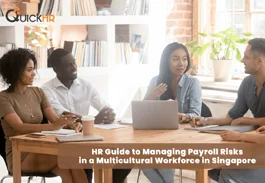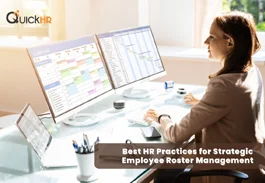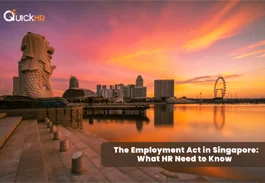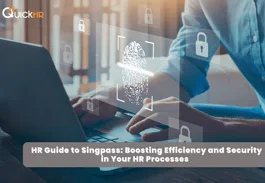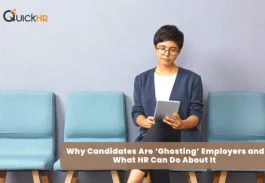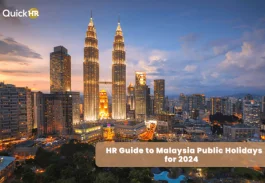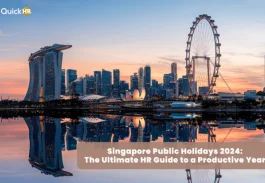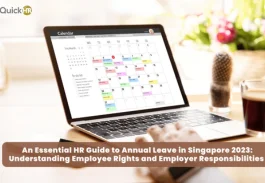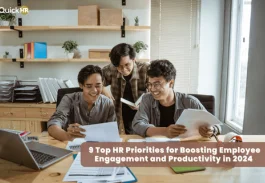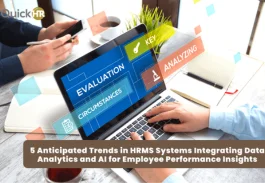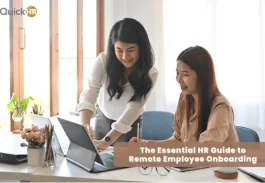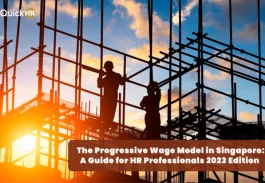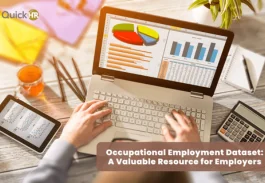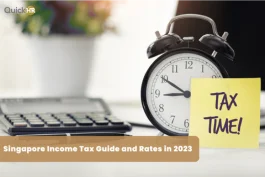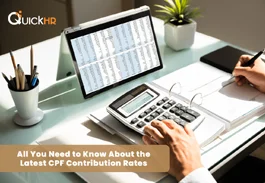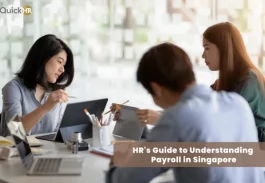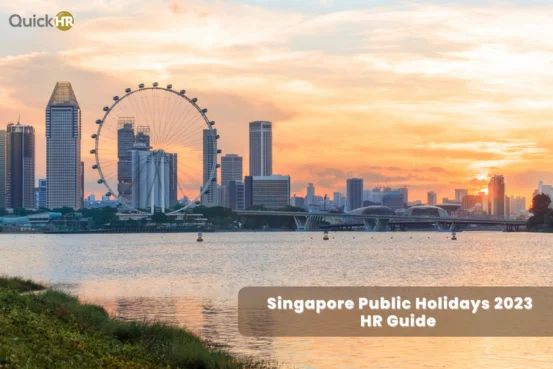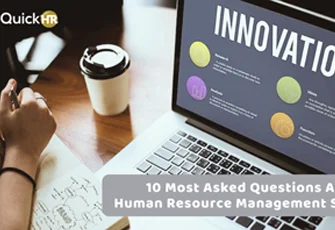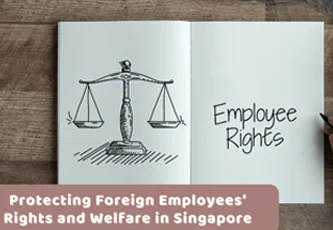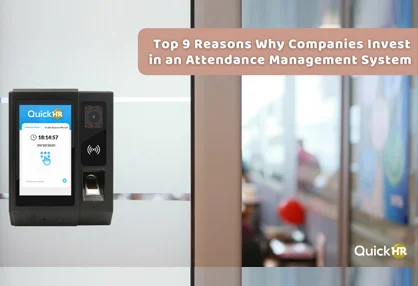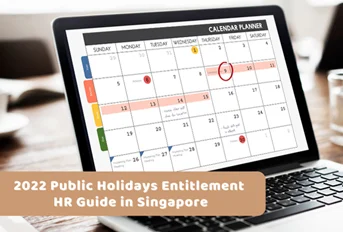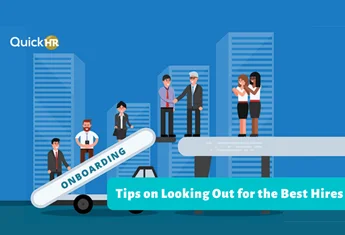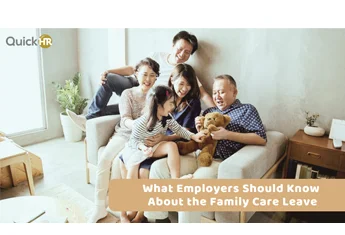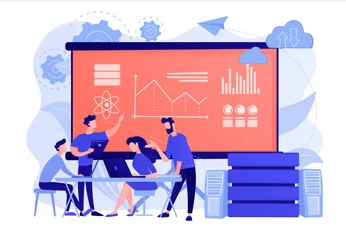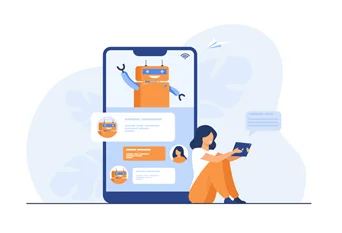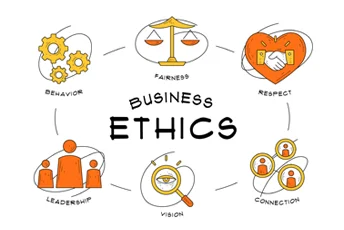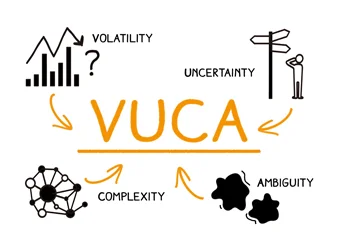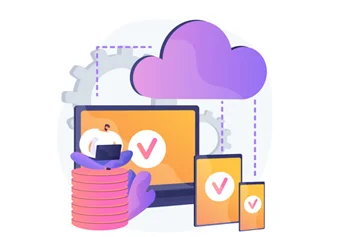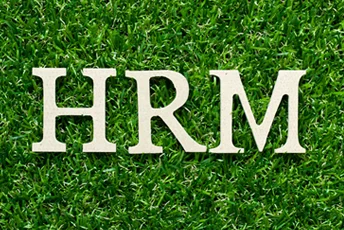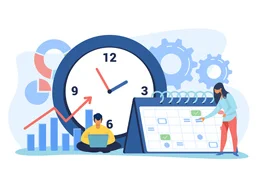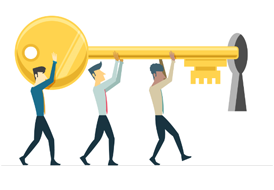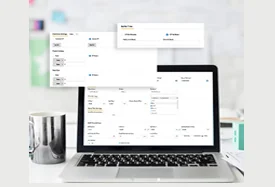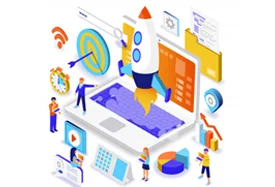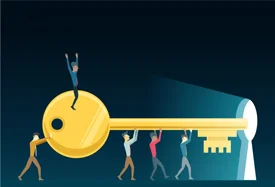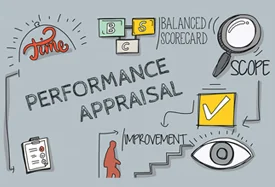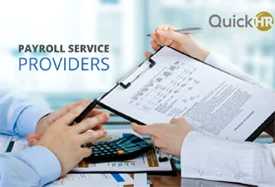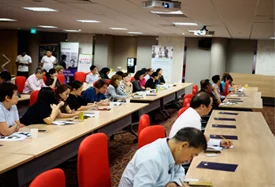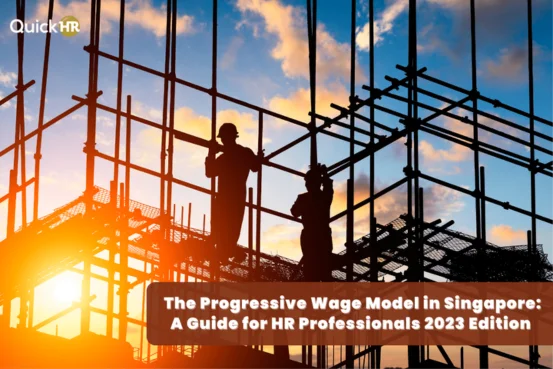
Progressive Wage Model (PWM) in Singapore: A Guide for HR Professionals 2024 Edition
Posted on 28 September 2023 in Business | Suki Bajaj
As an HR professional in Singapore, you’re likely familiar with the Progressive Wage Model (PWM) and its significant impact on the local workforce. Therefore, it’s important for businesses of all sizes to stay up-to-date on its latest developments to improve workplace productivity and ensure progressive business growth.
In this comprehensive guide, we’ll explore the latest enhancements and changes to the PWM, how it works, and how it benefits businesses and employees.
In this guide, we’ll talk about:
What is the Progressive Wage Model (PWM) in Singapore?
Developed by tripartite committees consisting of unions, employers and the government, the Progressive Wage Model (PWM) is a wage system that aims to uplift the wages of resident lower-wage workers in Singapore by providing annual wage increases, opportunities to upskill and improve productivity, thereby creating a clear career progression pathway.
It was first introduced in Singapore in 2012, initially focusing on specific sectors such as cleaning, security, and landscaping. The PWM has since broadened its reach to other industries, such as F&B, retail, and logistics.
Streamline Your Payroll Processes and Achieve PW Mark Accreditation with QuickHR!
Get Started Today!What Are the Benefits of the PWM in Singapore?
The Progressive Wage Model (PWM) is a win-win for businesses and workers. By adopting the PWM, businesses can effectively improve the lives of their workers as well as enhance their workforce productivity, helping them to build a more sustainable future.
- Increased wages: The PWM mandates annual wage increases for lower-wage workers, with the wage levels set according to job rungs, skills, and level of productivity. This has helped to reduce income inequality and improve the standard of living for lower-wage workers in Singapore.
- Opportunities for upskilling and productivity improvement: Upskilling can help workers acquire new skills and knowledge as well as enhance workers’ morale, which can lead to high-quality work, a more positive work environment, and improved business profits.
- A clear career progression pathway: The PWM sets out fair and distinct career paths with each job rung having its own set of skills and responsibilities. This gives workers the opportunity to earn higher wages as they acquire more skills and experience.
- Improved service standards and quality: Workers who are paid higher wages and have access to training are more likely to be engaged and motivated, as higher-skilled and productive workers are better able to provide excellent customer experience, which can lead to increased customer satisfaction and loyalty.
- Reduced turnover and recruitment costs: Workers who are satisfied with their wages and working conditions are more likely to stay with their employers and contribute to the company’s growth. This can help save money on recruitment and training costs.
- Greater social cohesion: Businesses that adopt the PWM are seen as being socially responsible and committed to their workers. This can attract the best talents, potential clients and investors, and boost the business' reputation.
The PWM is a good example of how tripartite cooperation between the government, unions, and employers can be used to achieve positive social and economic outcomes.
Who is Eligible for the PWM in Singapore?
The Progressive Wage Model (PWM) applies to Singapore citizens and permanent residents (PRs) working in cleaning, security, landscape, lift and escalator, retail, F&B services, and waste management.
Employers are also encouraged to adopt the principles of the progressive wage for their foreign workforce, to create a fair and equitable workplace for all employees.
Since 1 September 2022, Progressive Wages (PWs) expanded to cover more groups of workers including retail workers, and in-house cleaners, security officers and landscape maintenance employees.
Food services PWM, occupational PWs for administrators and drivers have been implemented from March 2023, and waste management PWM from July 2023.
PWMs currently in effect
| Sectoral / Occupational PWs | PWM requirements took effect from |
|---|---|
Cleaning sector
|
1 September 2014 1 September 2022 |
Security sector
|
1 September 2016 1 September 2022 |
Landscape sector
|
30 June 2016 1 September 2022 |
| Lift and escalator sector | 1 May 2019 |
| Retail sector | 1 September 2022 |
| Food services sector | 1 March 2023 |
| Occupational PWs for administrators and drivers | 1 March 2023 |
| Waste management sector | 1 July 2023 |
How is the PWM Implemented?
The PWM in the cleaning, security, landscape and lift and escalator sectors are regulated by their respective lead sector agencies through:
| Sector | Regulated by |
|---|---|
| Cleaning and Waste Management | Licensing condition by NEA |
| Security | Licensing condition by PLRD (SPF) |
| Landscape | Landscape Company Register requirement by NParks |
| Lift and escalator | Voluntary adoption during contractor registration requirement by BCA Lift and escalator firms that tender to undertake Government contracts for lift maintenance will have to adopt PWM. |
Eligible employers can use the Workfare Skills Support scheme to help offset a significant portion of the training costs for their Singaporean employees.
You may also go to the Business Grants Portal if you want to:
- Apply for support for job redesign
- Raise productivity and build capabilities for sustainable growth
How Does the PWM Work?
The PWM sets out a wage ladder with different pay and training requirements for eligible workers at different skill levels. These standard requirements are based on the committees' research that was conducted on wage levels and job requirements in Singapore.
The government also offers a variety of resources to help eligible companies implement the PWM, including grants, training programs, and technical assistance.
In order to comply with the PWM, companies are obligated to pay their workers at least the minimum monthly wage for their respective levels.
Failure to comply may result in penalties including fines and the loss of eligibility to bid for future government contracts.
What Are the Requirements for the Progressive Wage Credit Scheme (PWCS) 2023?
The Progressive Wage Credit Scheme (PWCS) is a government initiative in Singapore that provides financial assistance to employers to help them fund eligible wage increases for lower-wage workers, from 2022 to 2026.
Employers are encouraged to seize this opportunity to invest in their employees and improve the efficiency of their business operations.
Here are the latest changes on the requirements for the Progressive Wage Credit Scheme (PWCS):
Requirements from 1 September 2022
From 1 September 2022, the following are implemented through employers' eligibility for work passes:
- PWM in the cleaning, security, landscape, and retail sectors
- Extension of the PWM to in-house cleaners, security officers and landscape maintenance employees
- Local Qualifying Salary (LQS) requirement
Employers will have a grace period of six months, from September 2022 to February 2023, to comply with these new wage requirements.
Requirements from 1 March 2023
From 1 March 2023, the following are also implemented through employers' eligibility for work passes:
- PWM in the food services sectors
- Occupational progressive wages for administrators and drivers
Employers will have a grace period of five months, from March to August 2023, to comply with these new wage requirements.
💡NOTE: Employers who do NOT comply with the requirements (from 1 September 2022 AND from 1 March 2023) during the transitional period will NOT face enforcement action.
Requirements from 1 July 2023
To renew existing work passes or apply for new work passes, firms hiring foreign workers must comply with the PWM requirements for local employees covered by the respective PWMs and the LQS requirements.
Understanding the Progressive Wage Mark
The Progressive Wage (PW) Mark is an accreditation scheme that recognizes organisations that provide progressive wages to their lower-wage workers.
The PW Mark makes it easy for consumers and corporate buyers to identify and support firms that are committed to paying their workers a fair wage.
PW Mark Tiers
There are two levels of accreditation: PW Mark and PW Mark Plus. Both accreditations are valid for one year and are automatically renewed if firms continue to meet the eligibility criteria.
Progressive Wage Mark
Recognises firms that pay Progressive Wages to lower-wage workers
Progressive Wage Mark Plus
Recognises firms that meet the eligibility criteria for the PW Mark and also adopt the Tripartite Standard on Advancing Well-Being of Lower-Wage Workers (TS-LWW). These firms will be accredited with PW Mark Plus
Who is Eligible for the PW Mark?
The PW Mark is awarded to firms that meet the following criteria:
- Hire at least 1 Singaporean or permanent resident worker covered by the prevailing Sectoral PWs or Occupational PWs
- Pay the relevant workers according to PW requirements
- Pay all other local workers at least the Local Qualifying Salary (LQS).
PW Mark Plus
The PW Mark Plus is awarded to firms that meet the eligibility requirements for the PW Mark and adopt the Tripartite Standard on Advancing Well-being of Lower-Wage Workers (TS-LWW).
The TS-LWW is a set of progressive workplace practices that aim to improve the well-being of lower-wage workers by providing support in training and career development, workplace safety and health, and rest area provision.
Why Does Your Business Need the PW Mark Accreditation?
- Access to Government Procurement
The Government will require PW Mark-eligible suppliers and their PW Mark-eligible sub-contractors to be PW Mark-accredited for government tenders called from 1 March 2023. This will be extended to include quotations from 1 March 2024. - Attract and Retain Workers as Progressive Employer
By providing opportunities for skills training and higher wages, employers can help lower-wage workers develop the skills they need to stay in their jobs and be successful in their careers. This can help to reduce turnover and absenteeism, and it can also boost morale and productivity. - Gain Greater Visibility and Support from Consumers
Businesses that are committed to sustainable employment and social responsibility can attract more customers and gain greater visibility. - Enhance Firms' Corporate Image
By obtaining the PW Mark accreditation and being recognised for good policies towards lower-wage workers, companies can build a positive corporate image and gain compliance with government procurement regulations, leading to improved employee morale and stronger business relationships.
How to Apply for the PW Mark?
The PW Mark is a great way for employers to show their commitment to good employment practices. If you're looking to attract and retain top talent and solidify your reputation, applying for the PW Mark is a smart move. Here's how:
Step 1: Find out whether your business is eligible
To apply for the PW Mark, you first need to determine if your company meets the eligibility requirements.
Step 2: Update your occupational employment dataset (OED)
Before applying, companies must update their occupational and employment details for all employees through the Occupational Employment Dataset (OED) portal, which is administered by the Ministry of Manpower's Manpower Research and Statistics Department (MOM MRSD).
Your company's OED information will be used to assess your eligibility for the Progressive Wage Mark or Progressive Wage Mark Plus, and to facilitate a smooth renewal process.
Therefore, it's important for employers to keep the company's OED up-to-date with the latest changes to their employees' occupational or employment statuses.
QuickHR is an all-inclusive cloud-based and MOM compliant HRMS software that can help you be a part of the Automated Data Transfer Program and automatically transfer your organisation's data to the platform on a monthly basis!
QuickHR allows you to quickly and easily submit your employment data to the OED portal. Simply fill in the required details, inform our dedicated support team via email regarding your intention to submit your company’s OED using QuickHR and our HR system will automatically submit them for you with the click of a button!
We will also automate the data fields which change from month to month, including leave and payroll data. Large enterprises can also bulk upload their data for a more efficient submission process! Book a FREE demo today!
Step 3: Apply for the PW Mark on GoBusiness
If your company is eligible for the PW Mark, you can now start submitting your application. The whole process is simple, free, and can be completed online.
Simply log in to the GoBusiness Dashboard as a Business User using your Singpass and company UEN.
After logging in, go to the Progressive Wage (PW) Mark application page and carefully read the instructions before submitting your application.
Once your application has been submitted, you may track its progress on the portal. The processing time for the PW Mark is typically 5 business days, while the PW Mark Plus can take up to 1.5 months.
The validity period of your PW Mark is one year from the date of conferment. You can view the accreditation on your GoBusiness Dashboard under ‘My Accreditations’.
💡Note: Your PW Mark will be automatically renewed each year, as long as your business continues to comply with the accreditation criteria. You may also download your PW Mark e-certificate as proof of accreditation to share with your clients.
For more information on the PW Mark, you can visit the GoBusiness or Singapore Business Federation websites, or write to pwmark@sbf.org.sg.
Let Us Help You Get PW Mark Accreditation by Streamlining Your Payroll Processes!
With the QuickHR Payroll Management Software, you can easily ensure accurate, fair, and error-free payroll processing for your lower-wage workers.
Our all-encompassing payroll software is interconnected with multiple HR processes, including leave and claims management, attendance tracking, staff scheduling, and more, enabling you to effectively manage your workers’ wages, salaries, deductions, and benefits – all in one platform!
Enjoying this content? Subscribe and we’ll send the latest updates and special offers directly to your inbox.



